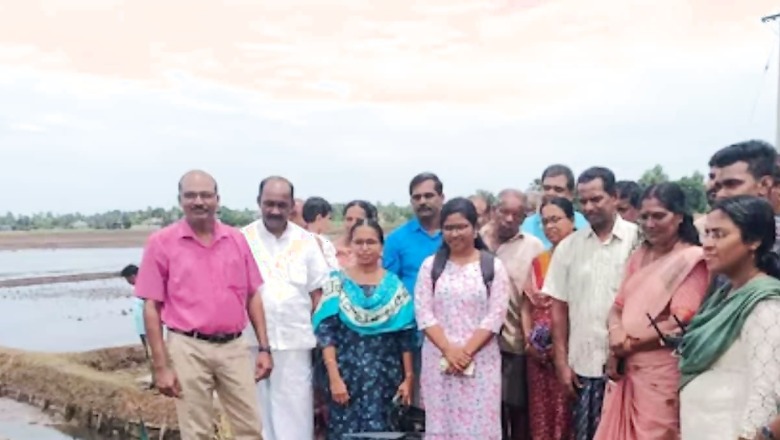
views
An experiment led by the Kerala Agricultural University has shown that using drones to sow paddy seeds can help farmers save time, money and seeds. The members found that drones are suitable not only for fertilising paddy but also for sowing seeds in locked paddies. The team experimented in the Chakkankari paddy field at Chakkankari paadasekharam in the Champakkulam Krishi Bhavan limits in Alappuzha. The seeds were sown on one acre of land, owned by MK Varghese Mannuparambil, as per The Hindu.
The drone seeder is designed by attaching a seed broadcasting unit to the agricultural drone. The experiment was conducted by the Kerala University of Agriculture. The MS Swaminathan Rice Research Centre under KAU at Mankombu, joined hands with the Krishi Vigyan Kendra (KVK), Kumarakom, for the experiment. Drone seeder efficiency seed larger paadasekharams in the Kuttanad rice belt, Agriculture officials announced the results of the experiment on Monday, July 8. It helps in conserving seeds, time and labour charges. Normally, 50 kg of seeds are required to sow in one acre of field but for the experiment, 30 kg of seeds were used. The Drone Seeder took just 25 minutes to cover the test area of one acre. The seeder, which has a capacity of 10 kg, made three fly-bys to complete the task.
Although fertilisers and micronutrients are sprayed using drones. It is the first time in Kerala that drones are used for sowing seeds. It has advantages like equal spacing of seeds, leading to less chances of overcrowded plants in the field. The failure of agriculture due to labour shortage can also be avoided to some extent with the help of drone seeders.
The Centre’s scientists – Joby Bastin, Nimmi Jose, Bindu P. S., KVK coordinator Jayalekshmi, Manuel Alex and Asha Pillai – led the experiment. The officials are now making efforts to promote the use of drone seeders among the farming community.














Comments
0 comment